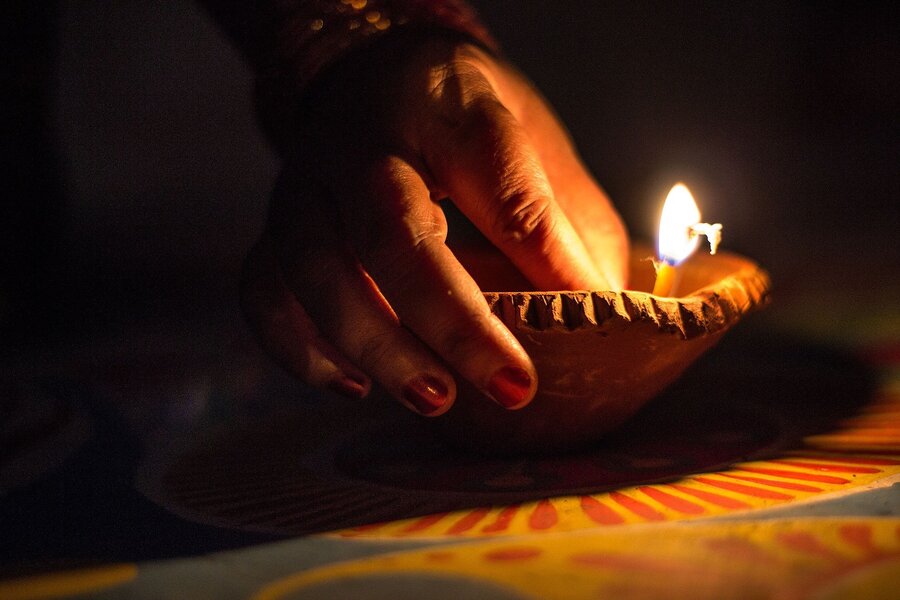Diwali or Deepavali is a celebration of light, symbolizing the triumph of light over darkness, good over evil, and knowledge over ignorance. Observed by millions of people across faiths, this three-day Indian festival brings joy, gifts, feasts, and for some, a new year.
The festival derives its name from the Sanskrit word “Deepavali” - a row (aavali) of clay lamps (deepa) that Indians light outside their homes to symbolize the inner light protecting each from spiritual darkness.
The vibrant Diwali — and its many legends
Diwali is extensively celebrated across religions — including Hindus, Jains, Sikhs, and Buddhists — that it has no single origin story; however, the ethos of stories from each religion ultimately represent the victory of good over evil.
Like the epic tale of when Prince Rama triumphantly won over the rival king Ravana, who had kidnapped Rama’s wife Sita; or like when Lord Krishna slayed the demon king Narakasura, freeing the 16,000 imprisoned women; or like when the 17th-century Sikh guru Hargobind was released after 12 years of imprisonment; or like when Lord Mahavira, the last of the great Jain teachers, reached nirvana, and so on and so forth!
Beyond these stories, across India, Diwali is also a celebration of the auspicious day when the Hindu goddess of wealth and good fortune, Goddess Lakshmi, entered into holy matrimony with Lord Vishnu.
Diwali and its significance in today’s age
Diwali celebrations span across the globe and are observed by Hindus and non-Hindus alike. In addition to India, the festival is an official holiday in many Asian countries. The city of Leicester in the UK is said to host the world’s biggest Diwali celebrations outside of India.
In India, people cover streets and buildings in festive lighting, declutter and clean their homes, go shopping, visit friends & exchange gifts and there are lively songs, dance, and dazzling fireworks. Families dress up in their best traditional attires, be it sarees, salwar kameez, or kurta-pajama, for the many Diwali parties that happen around the block.
And none of the gathering that one attends is complete without the decadent affair of consuming Indian mithai, which typically includes halwas, ladoos, jalebis, chocolates, and hot savories like samosas or pakoras - all accompanied by the garam chai (hot tea) makes for a warm deliciousness on the cold winter evenings of Diwali!
Diwali with the Ghograjan Community
The factory too is given a good sweep down and a big celebration is held to welcome goddess Lakshmi into our lives and to wish for a prosperous year ahead.
This Diwali, you too can join our community and share the joy of festivities with your loved ones. Gift them any of our premium tea kits and share the joy!
